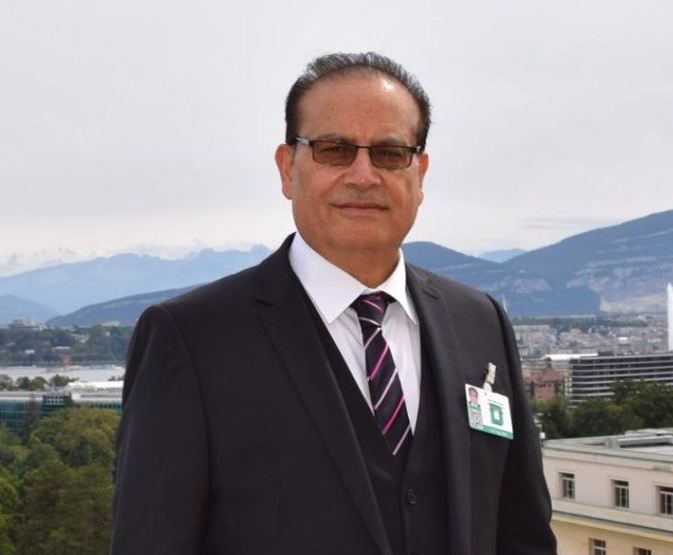By Qamar Bashir
The tone and tenor of the recent interview conducted by the BBC with Zabihullah Mujahid was markedly different from previous engagements. Unlike a few months ago, where his statements were filled with aggression, threats, and blame towards Pakistan for its failure to control terrorist activities within its borders, this interview took a more conciliatory approach. Mujahid extended an olive branch by highlighting shared cultural, religious, and social values, overlapping economic interests, and common borders. He offered the interim Afghan government’s willing assistance to help address Pakistan’s concerns regarding cross-border terrorism.
This shift in the Afghan Taliban’s stance did not occur in a vacuum. It was the result of sustained and persistent pressure applied by Pakistan, particularly by its military leadership. After recognizing that its previous appeasement policies were ineffective, Pakistan adopted a multi-pronged aggressive strategy with a singular objective: to make the Afghan Taliban understand that they must either rein in the Pakistani Taliban (TTP) and stop them from launching cross-border attacks, or Pakistan would be forced to take matters into its own hands to counter this threat decisively.
This aggressive policy included measures such as curbing cross-border trade, enforcing stricter border controls with formal visa protocols, shutting down traditional smuggling routes that have been financially sustaining the Afghan government, and expelling over 400,000 Afghan nationals residing illegally in Pakistan. Additionally, Pakistan conducted intelligence-based operations within Afghanistan, targeting and eliminating high-profile TTP operatives, further escalating the pressure on the Afghan government.
General Asim Munir, Pakistan’s Army Chief, has been actively pursuing a public relations campaign to garner domestic and international support for Pakistan’s aggressive stance towards Afghanistan. This campaign has included delivering numerous speeches at significant events, where he has consistently emphasized the necessity of eradicating the TTP and its networks, both within Pakistan and across the border. In a recent address to cadets at the prestigious Pakistan Military Academy in Kakul, General Munir invoked religious verses, denounced the TTP as Khawarij (a term historically used to describe extremist rebels), and urged the Afghan government to reciprocate Pakistan’s decades-long support by assisting in the elimination of the cross-border terrorism threat.
In his high-profile speeches, the army chief categorically ruled out any other options—political, economic, or diplomatic—for resolving the issue of the virulent and dangerous TTP. Instead, he has asserted that the only viable solution is to kinetically eliminate the TTP threat.
Against this backdrop, the recent interview with Zabihullah Mujahid holds immense significance. Mujahid presented several concrete proposals aimed at easing the frustration and anger of Pakistan’s leadership, particularly the military, which has been deeply affected by the ongoing sacrifices of its officers and soldiers. With patience and forbearance wearing thin, these proposals could be seen as an attempt to open a dialogue and potentially ease tensions between the two countries.
He has offered mediation between the Pakistan government and the TTP. However, Pakistan has already been engaged in several such mediated talks, which have often proven more detrimental than beneficial to its interests. Pakistan’s principal stance is that these notorious and dangerous elements have committed heinous crimes against the people and the state of Pakistan. The Afghan government, which has provided them refuge, equipped them with modern weapons, and offered them safe havens, is equally culpable in the conflict with the TTP, seemingly using them as strategic assets against Pakistan.
Therefore, Pakistan’s demands are twofold: first, that the Afghan government must cease harboring these militants, and second, that they must hand them over to the Pakistani authorities to be subjected to the legal and judicial processes and held accountable according to the laws of the land. Given these firm demands, the option of mediation is almost a non-starter for Pakistan.
Mr. Zabihullah Mujahid’s assertion that the issue is an internal matter for Pakistan carries little weight or substance, given that the Afghan government is knowingly and willingly harboring a declared terrorist group of over 6,000 heavily armed militants within its territory. By providing these terrorists with hospitality, financial resources, and the means to survive, Afghanistan has made itself an active party to the conflict. Therefore, it cannot, by any stretch of the imagination, declare itself uninvolved.
It is an internationally recognized norm that responsibility for acts of terrorism extends not only to the terrorists themselves but also to the entities or countries that harbor them and provide them with safe havens. This principle is enshrined in various international legal frameworks, including United Nations Security Council Resolutions, which emphasize the accountability of states that support or tolerate terrorist activities. Consequently, the claim made by Zabihullah Mujahid that the TTP issue is merely an internal matter for Pakistan is both illogical and lacking in reasonable basis.
His emphasis on the Afghan government’s commitment to ensuring that Afghan soil is not used for attacks against Pakistan is as hollow as his other assertions. The Afghan government is, in fact, harboring Pakistani nationals who have committed heinous crimes against the people and the state of Pakistan. They are fully aware that these individuals are involved in cross-border terrorism, masterminding and controlling operations within Pakistan to launch fatal attacks on the country’s vital interests.
Despite having the capability to rein in these violent groups and assist Pakistan in putting an end to their activities, the Afghan government, for reasons known only to them, not only harbors these militants but also seemingly encourages them to target Pakistan where it hurts most. This behavior calls into question the sincerity of their stated commitment to non-interference and suggests a deliberate complicity in the ongoing violence against Pakistan.
However, his last suggestion that Pakistan and Afghanistan should hold formal talks and negotiations to address any concerns carries significant merit, especially given the current context. By engaging in direct communication, Pakistan can clearly present its demands and concerns, compelling the Afghan government to take concrete and decisive steps in addressing the TTP issue comprehensively. Should these talks fail, Pakistan would gain further legitimacy and international acceptability for its kinetic operations aimed at exterminating the TTP menace.
By Qamar Bashir
Former Press Secretary to the President
Former Press Minister to the Embassy of Pakistan to France
Former MD, SRBC, CEO, ATV












